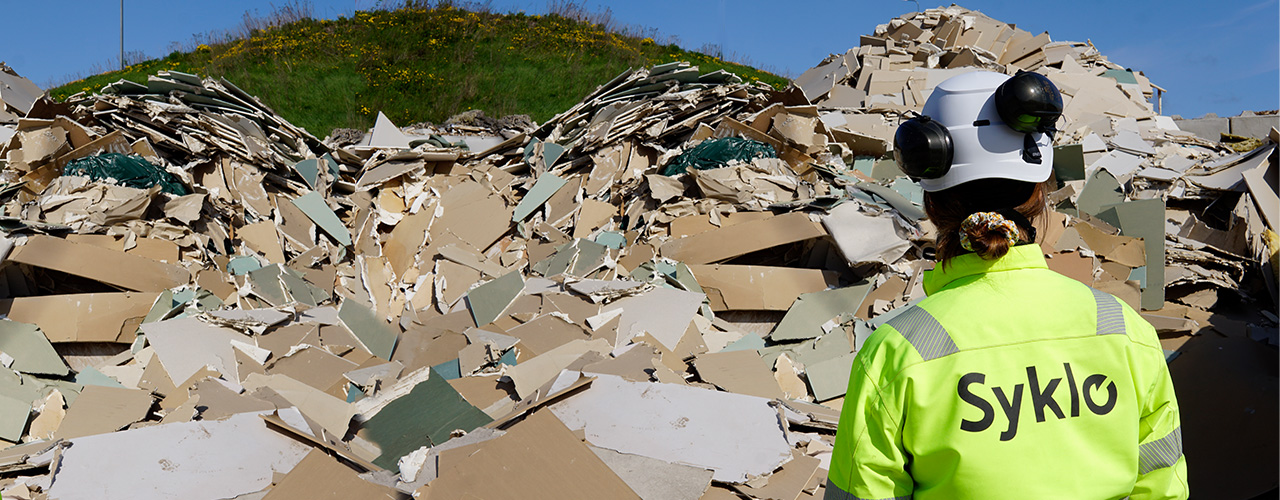
Syklo’s goal is to maximise the reuse of fractions
The circular economy is the most central and, at the same time, the most developing industry when considering ways to reduce overloading the environment and to create a sustainable future. The objective of the circular economy is not only to change our consumption habits, but also to offer new opportunities for a better and more sustainable use of existing materials and to completely close the cycles of different materials. Syklo’s circular economy experts are continuously looking for ways to maximise the reuse of valuable fractions within waste.
Reusing old construction materials begins at the construction site
The construction industry is one of the largest consumers of natural resources in the world. Each year, the industry uses 50% of the natural resources consumed annually and generates 35% of the global greenhouse gas emissions. Waste is generated as a result of new construction, as well as due to the renovation and demolition of buildings.
The utilisation rate of waste materials has previously been relatively low in Finland’s history. However, during the last decade, both the EU and Finland have started to set stricter requirements and measures to promote the circular economy of waste materials. In the construction industry, this means, above all, the efficient recycling and reuse of waste materials and components.
Syklo expanded its waste reception services this spring and now, construction sites around Finland are transporting pre-separated materials such as plastic pipe loads, plasterboard, insulating wool, and hard-to-dispose-of waste such as roofing felt to the Rusko waste sorting plant.
Circular Economy Manager Heikki Harju-Autti is responsible for receiving these previously listed individual fractions and for identifying their potential for reuse. Most of the fractions then continue their journey to Syklo’s partners for further processing. For example, hard HDPE, PVC, and PP plastic pipes are made into new plastic pipes.
“Of the individual fractions arriving at Syklo, the aim is to get all the material into reuse. The purpose of the collaboration is to make as big a percentage of the fractions as possible into new products. The rate of reuse is primarily affected by the purity of the recycled fractions and the degree of technological development,” Harju-Autti explains.
